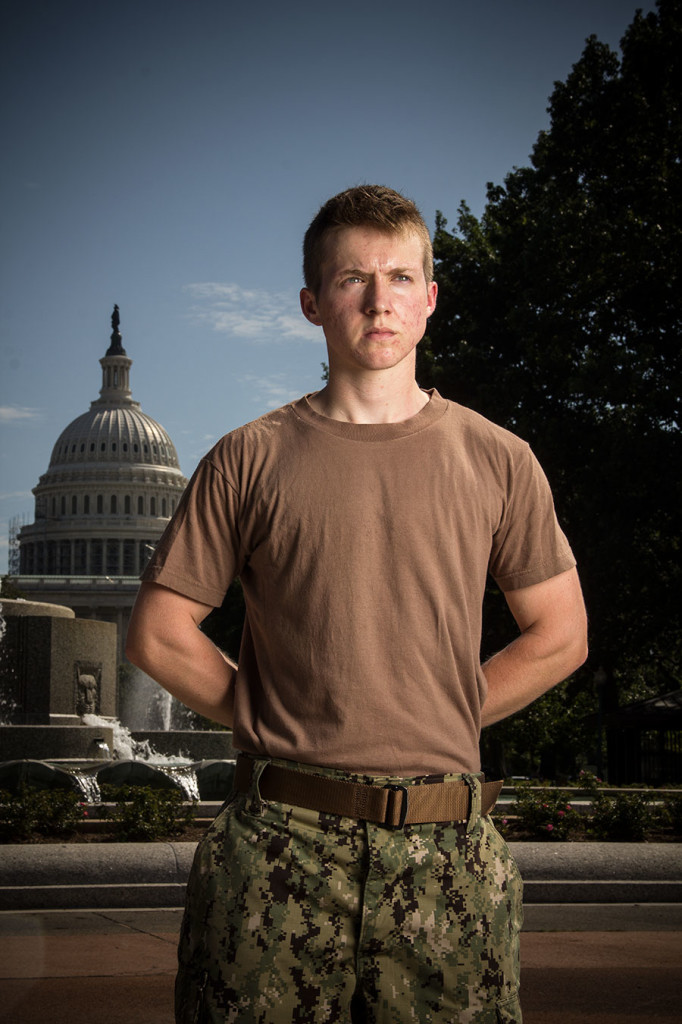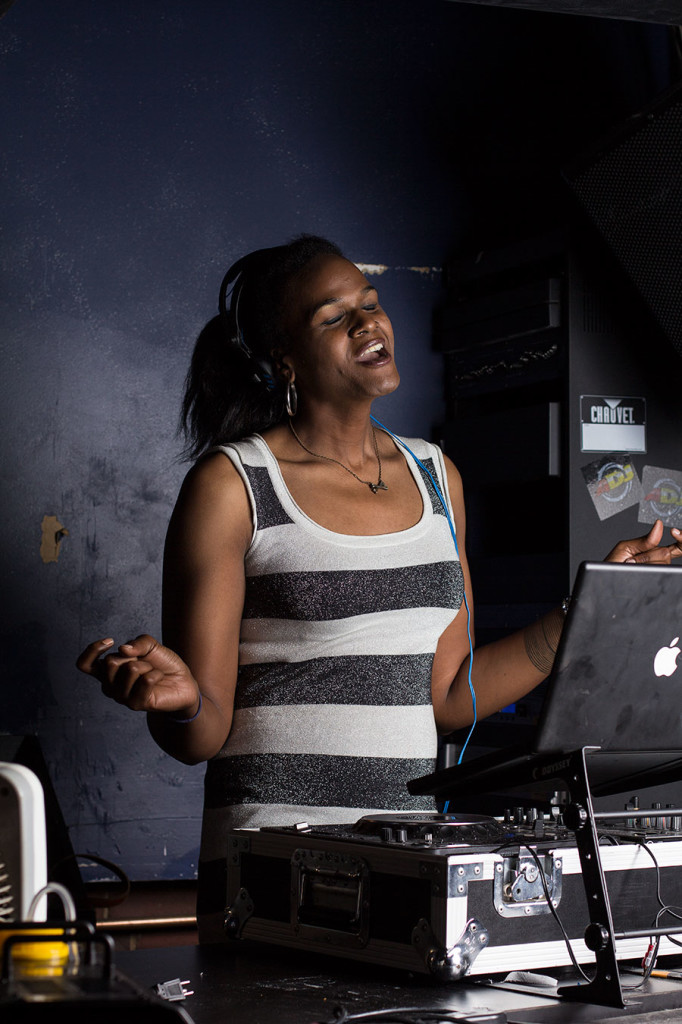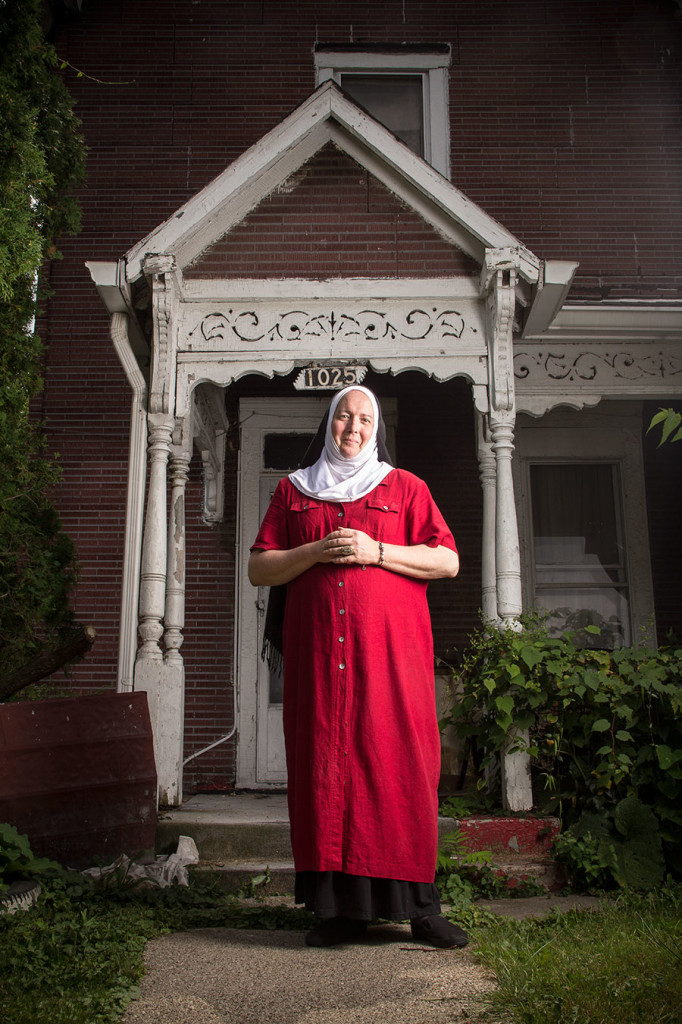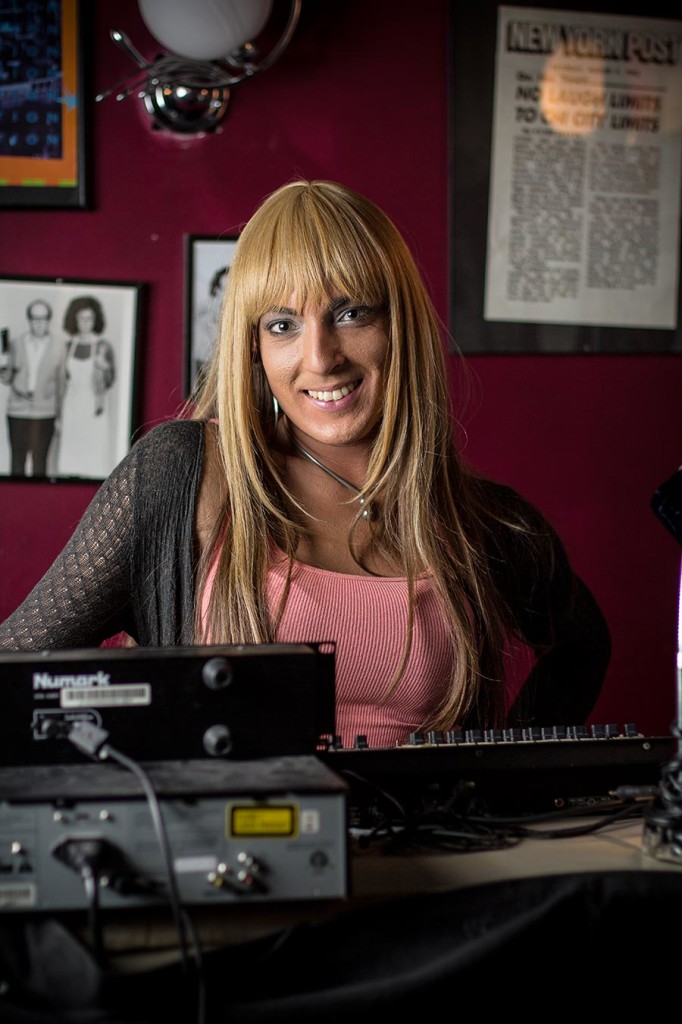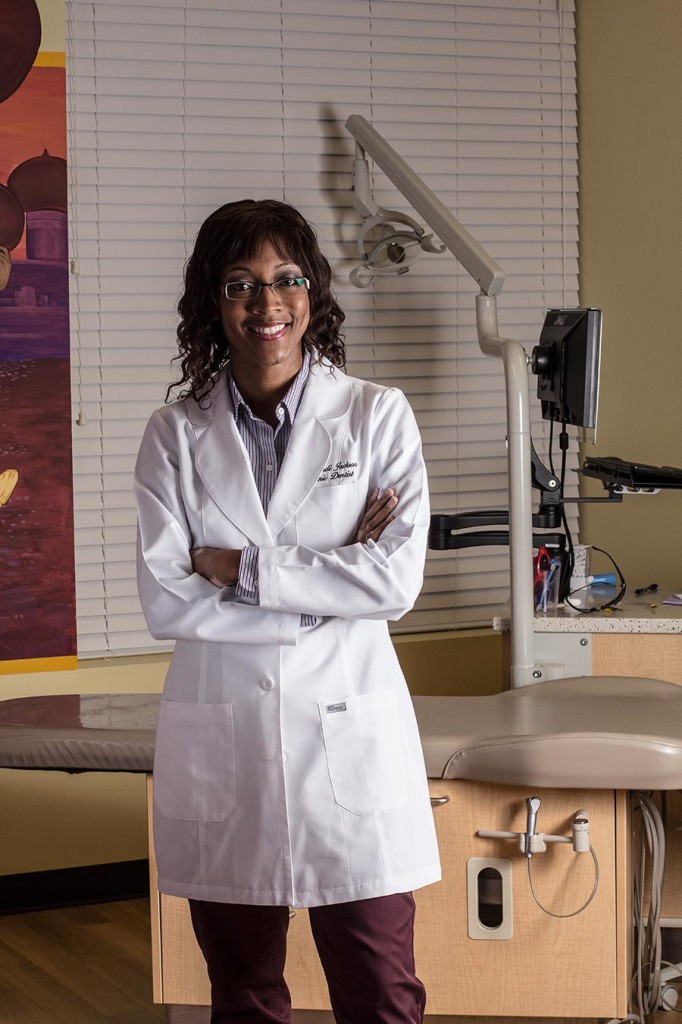Author | Allee Manning
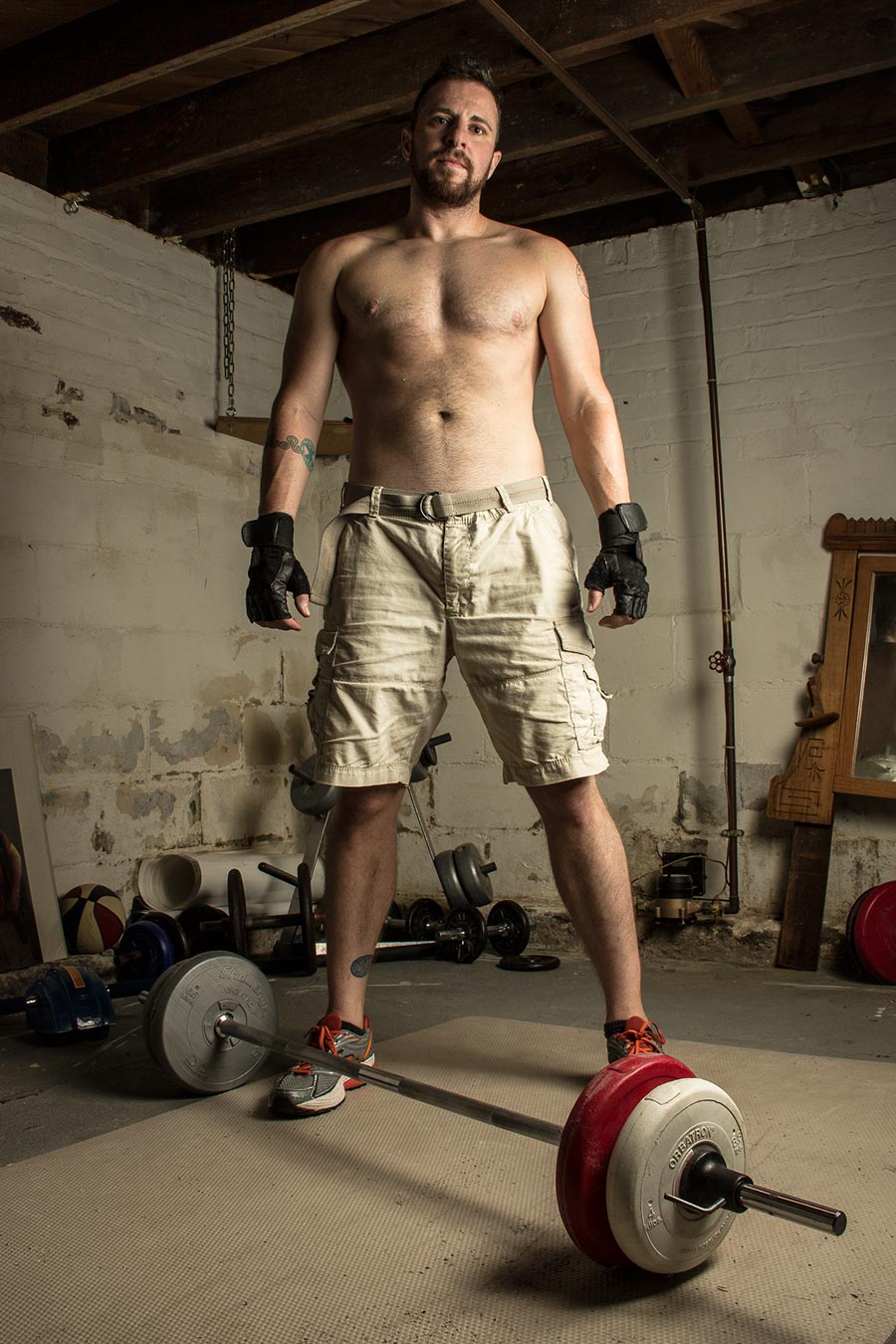
“I’ve been looking at these photographs and tried to figure out who has physically transitioned. And 10 minutes into trying to figure it out, I realized that it doesn’t matter.”
Though photographer and LGBTQ activist Rhys Harper has been behind the camera lens since 2003, it wasn’t until he began his own medical transition that he was able to make his photographic breakthrough. Nearly three years ago after moving from New York City to Syracuse, Harper began the portrait photography series “Transcending Gender,” which centered around the varied lives of trans and gender nonconforming people all over the United States.
“I feel like up until the point where I started my own transition I was kind of floundering,” he said of his work. “But then it was kind of like I found my voice. I knew that I loved photography and I knew that I was going to do something big but…it wasn’t until I really just found that voice and listened to it that this big thing happened.”
Given the final push to begin the project he had long envisioned after he was approached by a local art gallery, Harper took a break from his day job as a senior portrait photographer to take a crowdfunded trip across the country. In just three weeks, he drove from New York to L.A. and back in a Ford Fiesta by himself.
Now that his series has garnered national attention over the internet and over 1,000 applications of people who want to be photographed, Harper has launched his second Indiegogo campaign and is preparing to take to the road again. With plans for a large scale project down the line, he says he also aims to incorporate photographs of people of all gender identities—not just those that are trans or gender-nonconforming.
“Over the last year, I’ve been having the realization that gendered expectations don’t just affect trans people, they affect everybody,” he said. “They are sort of at the root of so many things: violence against trans people, the non-acceptance of trans people, [mistreatment] of women, gay men, gay women, straight men and women…everybody. I really want to start shifting some conversations in our mainstream society.”
(The following interview has been edited and condensed for clarity.)
How has this experience shaped your identity as a photographer-slash-activist?
Well, I never really considered myself an activist and I still don’t like to use that word. But once I started this series everything sort of clicked and I was like, ‘This is my identity, I’m a portrait photographer.’ Then it was sort of that moment when I started seeing how powerful it was for people looking at portraits. People love it; I feel like there are very few people who don’t feel something when they look at portraits of other people. So I started seeing how I could really use that to make change. I think when I realized that I could start a conversation about gender, so that’s what I’ve been trying to do.
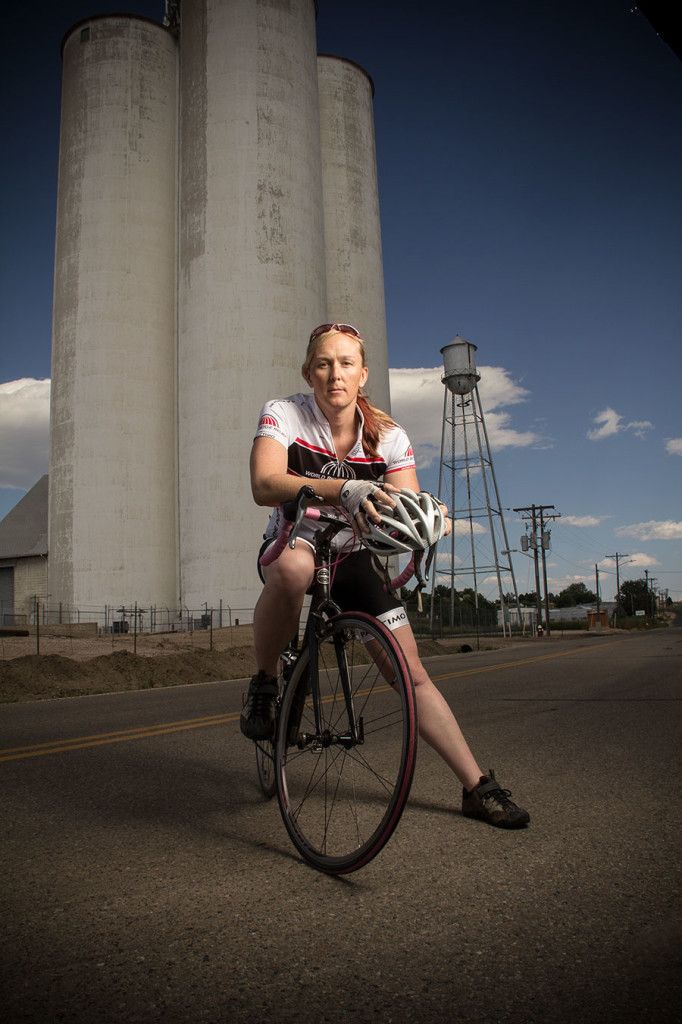
What do you ultimately want for people to take from this photo series?
From the beginning, I had to ask myself how can this continue to grow because if you want to make change you have to go to the places that need it. And I have felt that with a lot of work being done, we’re kind of preaching to the choir, so I really wanted to reach people who really don’t know about [issues of gender]. From the very beginning, I’ve been asking myself how I can bring people outside of the trans community into this. I’m trying to create community.
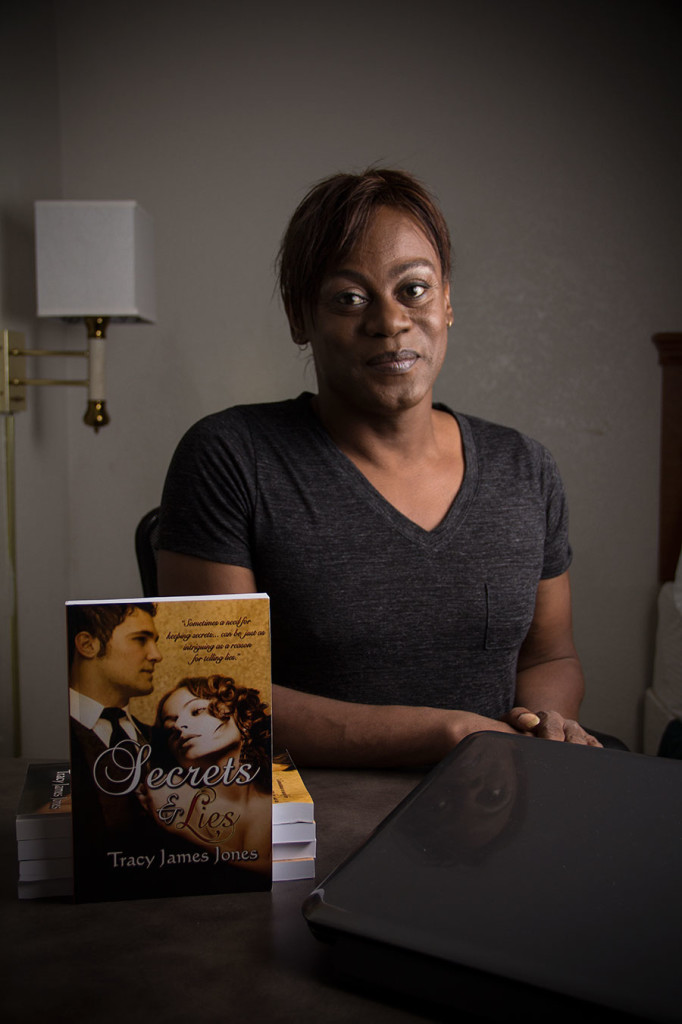
What was it like when your project blew up on the internet?
It’s been surreal. It’s been really amazing. For the most part, it’s been just an overwhelmingly positive response. Of course, I’m not trying to please everybody with this project but I am trying to create community. Within any community there are some divisive aspects, so I’ve really just tried to stay committed to photographing people in an authentic way.
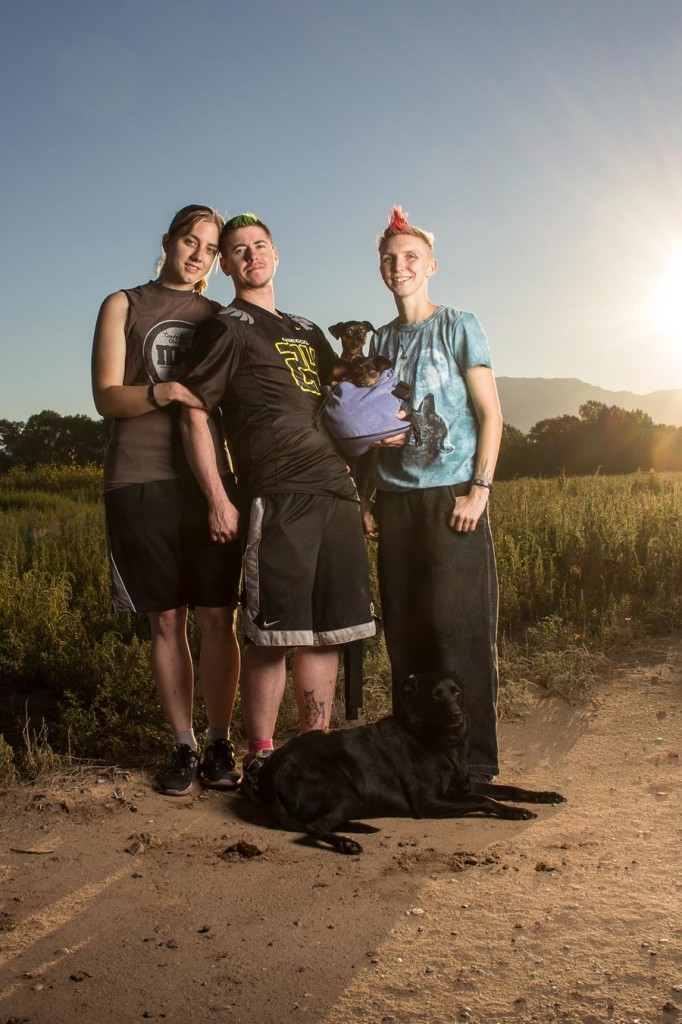
Any feedback in particular that struck you regarding those issues?
None of the project is meant to be a statement with any issues that [these] people may be involved with on a personal level. I photographed a guy from Oklahoma holding a hunting rifle. It’s not meant to be a statement [on gun control] but I [received] a couple of comments about that. That photograph, though, is very important for people in the south. They see someone else who is different from them but is very much the same. They have these shared interests. And I feel like you don’t really hear these southern small town stories as much as you hear about these big cities stories. Some of the best feedback I’ve gotten about this project is people coming up to me and saying, “Thank you for including rural stories because you just don’t hear them, you don’t see them.”
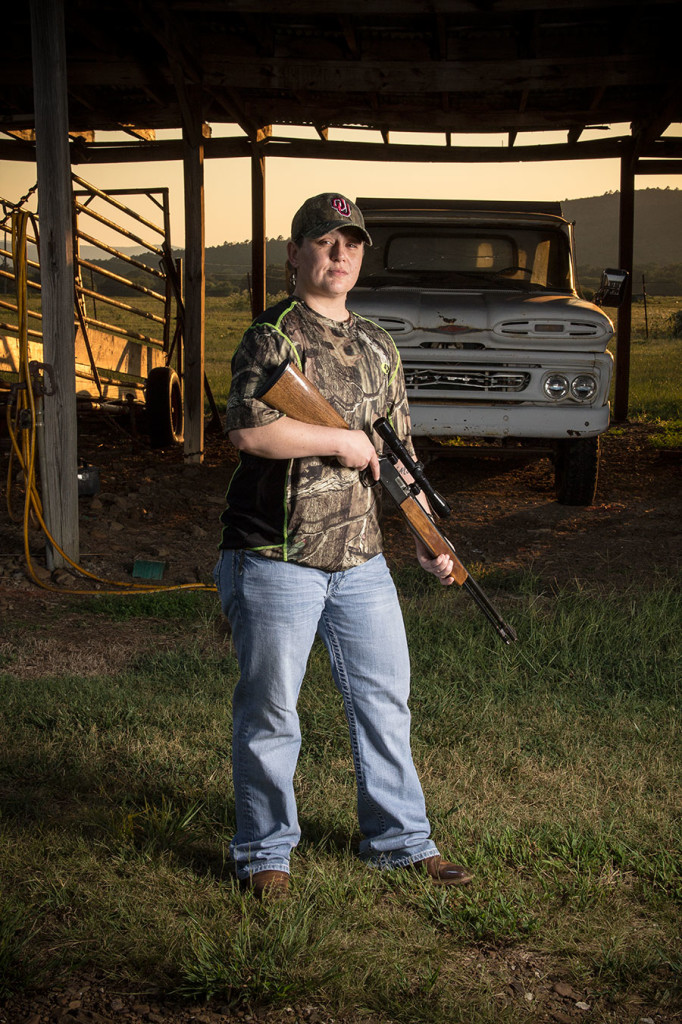
Your web site says that transition-related discussions will not be part of the narratives in this project. Why did you make that decision?
There are people out there, myself being one of them, who are OK with talking about that. But Laverne Cox and Janet Mock and some other awesome trans women who we’ve seen in the media a lot recently have been such pioneers in focusing these discussions on who we are as people. I think that’s really important. There’s a lot of curiosity by people who want to know about physical transition, but I just want to focus back in on, ‘This is a person who is a cyclist. Who is a doctor. Who is a student or musician.’ We’re not any different than the next person, really. We have these experiences that we share together as humans.
I’ve [also] gotten some feedback from surprising people who I didn’t think would necessarily feel this way who’ve said, “I’ve been looking at these photographs and tried to figure out who has physically transitioned. And 10 minutes into trying to figure it out, I realized that it doesn’t matter.”
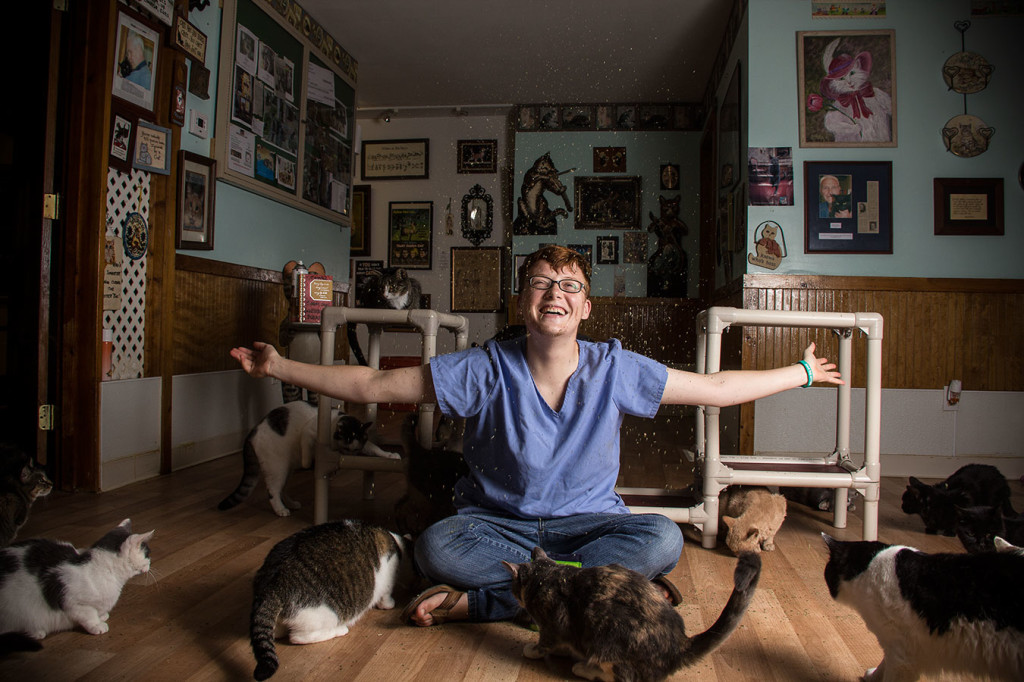
Tell me about your plans with this project moving forward.
This really started out as a series of people who have trans experience. When I originally conceived this portrait series it was like back in 2008 and my first iteration of it was, ‘How can I photograph trans people and people who are gender nonconforming in a way that when the viewer looks at them they have literally no idea they’re trans people?’ Now, I really want to start incorporating people who don’t identify as transgender or gender nonconforming and I want to start having people talk about their experiences with gender. I think when all is said and done, you’ll have this beautiful mixture of portraits just all there together. And I think that’s kind of how it should be.
